How can I reduce the freight costs from China?
In the process of transporting goods from China to all parts of the world, freight costs often become a cost factor that cannot be ignored, directly affecting the profit margin and market competitiveness of enterprises. So, how can we effectively reduce the freight costs from China? This is the core issue that many shippers and merchants are concerned about.
This article will introduce how to reduce freight expenses through various strategies when transporting goods from China through detailed analysis, helping readers to fully understand the cost control methods in international logistics.

How to reduce the freight costs from China?
1. Choose the right mode of transport
1.1 Ocean transport: a low-cost option for large quantities of goods
1.2 Air transport: fast but costly
1.3 Express and integrated logistics services: flexible but expensive
1.4 Railway transport: a compromise between cost and timeliness
2. Optimize cargo packaging and weight
2.1 Avoid overpackaging
2.2 Reduce unnecessary accessories and packaging materials
2.3 Reasonable weight distribution
3. Plan ahead and arrange transportation time flexibly
3.1 Avoid peak transportation season
3.2 Choose transportation time flexibly
4. Choose the right freight forwarder and negotiate freight
4.1 Choose a freight forwarder
4.2 Freight negotiation and contract signing
5. Integrate goods and share logistics
5.1 LCL transportation and integrate goods
5.2 Use third-party logistics platforms
6. Avoid hidden fees and pay freight in advance
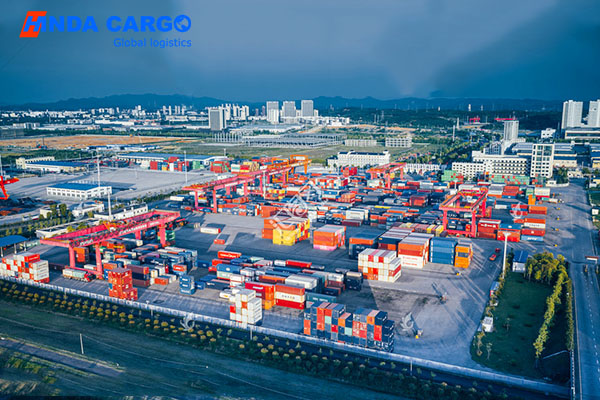
Choose the right mode of transport
In cross-border transportation, the mode of transport is the primary factor affecting freight. Different modes of transport include ocean, air, rail and express, each with its own unique cost structure, timeliness and applicable scenarios. Understanding the differences between these methods and choosing the most appropriate transportation plan based on the actual needs of the goods is an important means to reduce freight costs.
Ocean freight: a low-cost option for large quantities of goods
Ocean freight is usually one of the most common and economical modes of transportation in international trade, especially for large quantities and non-time-sensitive goods. Compared with air freight and express delivery, ocean freight is cheaper, especially when the quantity of goods is large, choosing full container load (FCL) can significantly reduce the unit cost. In addition, less than container load (LCL) is also a cost-saving option for small quantities of goods.
However, ocean freight takes a long time, and the journey from China to the United States or Europe usually takes about 20 to 40 days. Therefore, ocean freight is suitable for shippers who are not very demanding on time and pursue cost savings.
Air freight: fast but costly
The biggest advantage of air freight is its speed, usually only 2 to 7 days from China to major cities around the world. Therefore, air freight is the most ideal choice for high-value, fragile goods or goods with extremely high timeliness requirements. However, air freight is more expensive, especially when the weight or volume of the goods is large.
In order to control air freight costs, companies can consider optimizing air freight expenses by reasonably planning freight weight and volume, choosing suitable airlines or consolidating goods.
Express and integrated logistics services: flexible but expensive
Express companies such as DHL, FedEx, UPS, etc. provide door-to-door integrated logistics services, which are usually suitable for small items and parcels with high timeliness requirements. Although express delivery services are convenient and fast, the freight is relatively expensive. Therefore, it is suitable for small quantities of high-value goods or goods that need to be transported urgently.
When choosing express delivery services, companies can negotiate discounts with logistics companies, especially when the business volume is large, many express delivery companies will offer more favorable prices.
Railway transportation: a compromise between cost and timeliness
For shippers in European countries, railway transportation is a compromise between cost and timeliness. China has strengthened its railway transportation links with European countries through the "Belt and Road" strategy. This mode of transportation is faster than sea transportation and cheaper than air transportation, and usually takes 15 to 20 days to transport. Railway transportation is suitable for shippers who need goods to reach Europe quickly but are unwilling to pay high air freight costs.
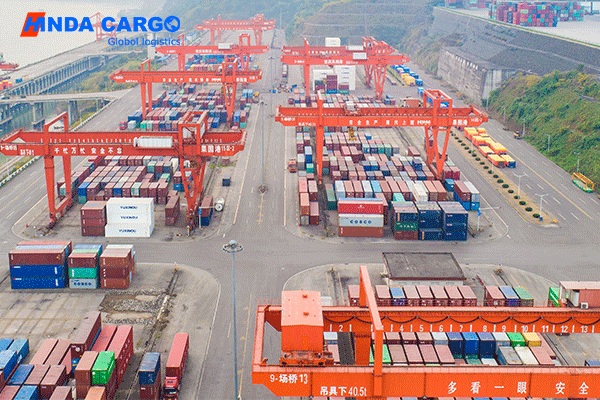
Optimize cargo packaging and weight
In international transportation, freight depends not only on the mode of transportation of the goods, but also on the volume and weight of the goods. Therefore, shippers can reduce transportation costs by optimizing packaging and weight.
Avoid overpackaging
Overpackaging can increase the volume of goods, causing the volume weight (weight calculated based on volume) of the goods to be greater than the actual weight, thereby increasing transportation costs. Especially in air transportation and express delivery services, freight is often calculated based on "volume weight". If the actual weight of the goods is light but the volume is large, the shipper still needs to pay high fees for the excessive volume.
By rationally designing the packaging and selecting appropriate materials and sizes, the volume weight of the package can be effectively reduced. In addition, the effective use of containers or pallets to avoid unnecessary gaps can also reduce the volume weight during transportation, thereby reducing freight costs.
Reduce unnecessary accessories and packaging materials
On the premise of ensuring the safe transportation of goods, reducing unnecessary accessories and excessive packaging materials is also the key to reducing freight costs. Excessive packaging materials not only increase the overall weight of the goods, but may also occupy additional volume space. When packing, shippers can consider using lightweight, sturdy packaging materials, such as foam boards, bubble bags, etc., to reduce the overall weight.
Reasonable weight distribution
If the goods are too heavy, especially in express or air transport, the weight of a single package will significantly increase the freight when it exceeds a certain range. Therefore, shippers can consider packing the goods in batches and reasonably distribute the weight of each package to avoid additional costs due to the weight of a single package.
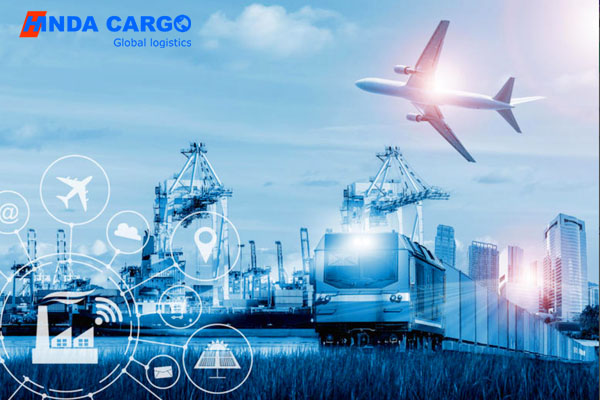
Plan in advance and arrange transportation time flexibly
The price of international transportation is often affected by supply and demand. The price difference between off-season and peak season, as well as planning transportation time in advance, can help shippers obtain more cost-effective transportation solutions.
Avoid peak transportation season
During certain periods of the year, such as holidays, Chinese New Year or other shopping seasons, the demand for international transportation surges, resulting in a significant increase in freight costs. For example, during the "Black Friday" or "Double Eleven" shopping festivals of e-commerce platforms, the logistics pressure is high and the freight costs will also rise accordingly.
In order to avoid paying high freight costs during peak periods, shippers can choose to transport during the off-season, or arrange shipments in advance to ensure that the goods can complete logistics operations before the peak of transportation arrives. This approach can help companies effectively avoid freight increases caused by peak transportation.
Flexible choice of transportation time
Some logistics companies offer "economy services", which are slower but cheaper transportation options. Such services usually allow goods to be transported for a longer time, but also mean that the freight is relatively low. For goods that are not time-sensitive, choosing economy services is an effective way to reduce freight costs.
In addition, flexible arrangement of transportation time and a "mixed transportation plan" combining sea and air transportation can also reduce freight expenses to a certain extent. For example, the owner can choose to send some urgently needed goods by air first, and transport most of the goods by sea, so as to ensure that the goods arrive in time while controlling the overall transportation cost.
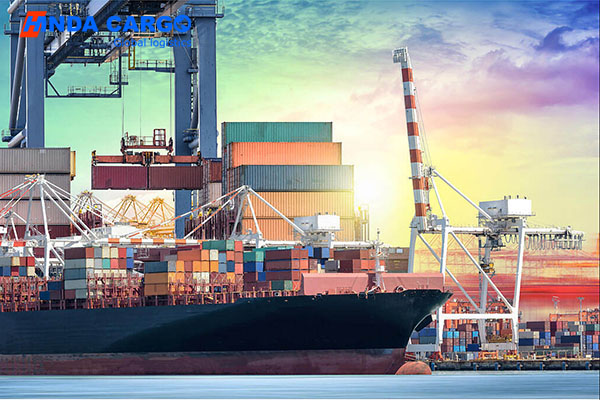
Choose the right freight forwarder and negotiate freight
The partnership between the owner and the freight forwarder also plays a key role in reducing freight costs. The freight forwarder is responsible for arranging transportation for the owner, choosing the most suitable route, and handling customs clearance, warehousing and other related matters. By negotiating freight rates with the freight forwarder and signing a long-term cooperation agreement, the owner can gain more room for cost control.
Selection of freight forwarding companies
Different freight forwarding companies vary greatly in price and service. Therefore, when choosing a freight forwarding company, the shipper should choose a company with good reputation and reasonable quotation in the industry according to actual needs and transportation methods. In addition, consult the quotations of several freight forwarding companies, and choose the most cost-effective partner by comparing factors such as price, transportation time, and service content.
Freight forwarding companies are usually able to provide a variety of services, including LCL services, door-to-door services, etc. Shippers can choose suitable service plans according to their own needs. In long-term cooperation, freight forwarding companies will provide more competitive prices based on factors such as the shipper's shipment volume and shipment frequency.
Freight negotiation and contract signing
Freight negotiation is very common in international trade, especially when the shipper's shipment volume is large, negotiating freight with logistics companies or freight forwarding companies can significantly reduce expenses. Shippers can negotiate freight with freight forwarding companies based on historical shipping records and future shipping plans to obtain bulk discounts or other preferential policies.
In addition, signing a long-term transportation contract is also an effective means to control freight fluctuations. In the international logistics market, freight rates are affected by many factors, such as fuel prices, exchange rate changes, seasonal demand, etc. By signing a fixed contract, shippers can lock in freight rates for a certain period of time and avoid cost increases caused by market price fluctuations.
Integrate goods and share logistics
In international logistics, shippers can also reduce freight rates by integrating goods and sharing logistics resources. This method is particularly suitable for small and medium-sized enterprises or individual merchants, who often cannot afford high transportation costs alone.
LCL transportation and consolidated goods
For shippers with small volumes of goods, choosing LCL transportation (LCL) is an effective way to reduce freight rates. LCL transportation allows multiple shippers to consolidate goods in one container and share freight rates in proportion. This method not only saves costs, but also ensures that goods are delivered to the destination within a reasonable time.
Utilize third-party logistics platforms
Some third-party logistics platforms provide shared logistics services to help shippers transport goods together with other shippers' goods, thereby reducing freight rates. This method is usually implemented through online platforms, and shippers can choose to share logistics resources with other merchants to optimize transportation routes and storage utilization.
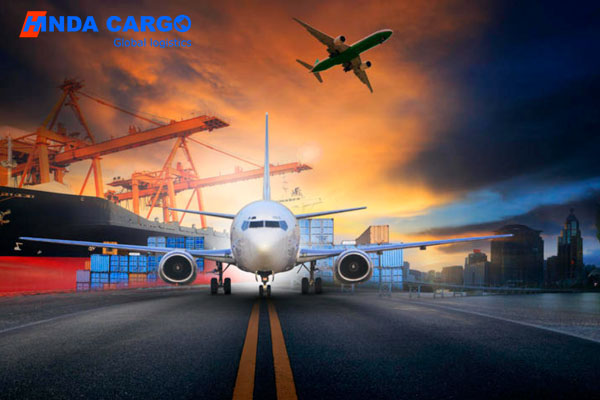
Avoid hidden costs and pay freight in advance
In addition to the transportation costs themselves, there may be many hidden costs involved in international logistics, such as customs clearance fees, fuel surcharges, storage fees, etc. Shippers can avoid increasing costs due to opaque additional fees by understanding these fees in advance and confirming the specific fee details with the logistics company.
In addition, some logistics companies offer preferential policies for paying freight in advance. By prepaying freight, shippers may enjoy a certain percentage of discounts, thereby further reducing the total transportation costs.




